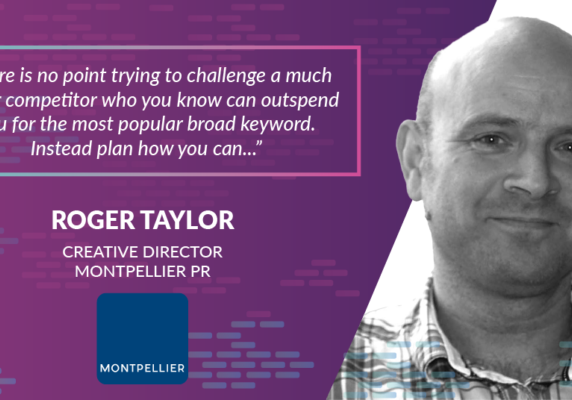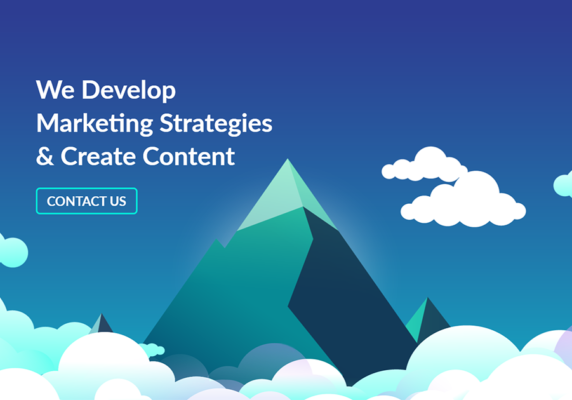B2B Marketing Expert Interviews – Johnny Walker
“When we have understood our clients problems and pains so well that they think we have read their mind, then our conversion rates jump.”

We’re very pleased to be joined today by Johnny Walker, Marketing Manager at We Are CONKER & Non Executive Director for My Community Bank who has kindly agreed to speak about growth hacking and marketing tactics. A very warm welcome to you.
Your work at We Are CONKER forms a very impressive, all-encompassing marketing drive/strategy that covers a plethora of areas – everything from inbound, through to content and experimentation marketing. Is there a specific field that you find consistently demands the most attention/focus on a day-to-day basis?
Deepening our relevance to our target audience is where we get the most ROI and where I spend more effort / time than anything. Basically, listening. When we have understood our clients problems and pains so well that they think we have read their mind, then our conversion rates jump.
What would you say are your favourite inbound marketing tools? Those which have proved to be the most successful in your experience?
I have experimented with all sorts in my time – always testing. Zapier is my favourite, as it allows us to create automation sequences across apps. The basics are covered – Website is on WordPress, CRM is ActiveCampaign, landing page builder is LeadPages and of course Google Apps. I also access some growth hacking tools like Phantom Buster, JetBuzz and others, which provide some real zing to our audience attraction strategy.
“Growth hacking is being a pioneer, trying new things…you’ve got to love the process…”
If we can focus on one of the other marketing practices you specialise in, what would you say are the key areas that an enterprise adopting growth hacking needs to bear in mind? What would your advice be to them?
Be prepared to fail. Then speed up your rate of failure. Speed of taking action and learning from the consequences can be painful unless you learn to fall in love with the process. Growth hacking is being a pioneer, trying new things…you’ve got to love the process because the results are both spectacularly good and spectacularly bad.
“You can be everywhere in front of your audience using digital tools. However that level of omnipresence can be horribly spammy unless you are relevant.”
When the investment required to apply growth hacking is so low, what other factors, if any – deter companies from experimenting with this approach?
The price of tools can be low. The costs of screwing things up can be high. The time lost on a strategy that didn’t work out can be expensive. That’s why speed is key. Implement fast, learn fast, iterate fast. This mindset of failing fast puts a lot of marketers off. They want a proven or more assured result to begin with, that they can apply with less risk. So fear of failure and an anti-risk culture can be a deterrent.
There appears to be a large emphasis in growth hacking on ensuring that the product/service fits the market (people). Do you see growth hacking as a key influence for enterprises to change their actual business model?
“That’s why speed is key. Implement fast, learn fast, iterate fast.”
Absolutely. Growth hacking is about scale. If you have a bad fit product or service, then growth hacking can just magnify the failings. If you apply growth hacking skills and there is a catastrophic failure or tumble-weed, then that should alert you to more fundamental problems. Although I don’t see many growth hackers in marketing make this mistake – we know the fundamentals come first.
A lot of the methodical approaches and tactics employed in growth hacking would seem to benefit traditional marketers – would you agree and if so, which of the elements/approaches of growth hacking are easiest for traditional marketers to grasp?
“No one rationalises a decision they didn’t make emotionally first. “
Growth hacking can be an extension of a marketing capability, but is also used by start-ups to get massive traction quickly. Either way, your Market and your Message need to be on point. No amount of changing the Method / Medium can make up for crappy fundamentals. Once you have your Market and your Message nailed and have got over the fear of screwing things up – the rest is pretty basic and can be a lot of fun.
Where do you see marketing in general heading? Following this notion, which companies do you feel (B2B or B2C) are ahead of the curve?
Marketing is heading towards being much closer to its prospects. This will be manifested across three things. Intimacy, Omnipresence and Relevance. You can be everywhere in front of your audience using digital tools. However that level of omnipresence can be horribly spammy unless you are relevant. If you are going to succeed beyond a regular level of relevance, you need to have a more intimate relationship with your prospects and customers, which comes from a deeper level of trust. Get those three things right and whether you are B2B or B2C, you’ll be H2H (Human to Human) and win.
“GDPR asks marketers to be much more relevant to their audience…[it] should amp up the performance of good marketers and show up poor [ones] quickly.”
Data seems to hold the answer in removing a lot of the guesswork from marketing. Do you think that with the increase in tightening of data regulations along with successful high precision marketing methods like growth hacking – that businesses will be encouraged to use their data more efficiently and effectively, such as with lead generation?
I think GDPR has been a hugely positive game changer for the EU. Anyone outside the EU (say the US) who does not follow suit, will likely lose out. GDPR asks marketers to be much more relevant to their audience. Improving targeting and reducing the size of prospect databases, to just those who are your ideal customer and engaged enough to justify you maintaining them on say, an email list, should amp up the performance of good marketers and show up poor marketers quite quickly.
Marketers have long debated the merits of decision making being either driven by emotion or using logic – which would almost suggest that they are somehow mutually exclusive. From your experience what is your take on this and how do you cater to either through your own marketing practices?
We know that study after study proves that emotion drives decisions and logic rationalises them. One always follows the other. “I love those new shoes” becomes “and I can wear them to that upcoming wedding and so and so’s party in a few months time, which saves me having two pairs of shoes, that I might only wear once each”. No one rationalises a decision they didn’t make emotionally first. Make sure that you understand your prospects emotional drivers (hopes, fears, dreams, greed….) and then the problem you solve (efficiency, productivity, reduced financial costs….) otherwise you’ll lose to the marketer that did the extra work.
One again, I’d like to thank you Johnny for sharing with us your marketing expertise and shedding some much-needed light on the topics raised today. If you are a B2B Marketing Expert and would like to voice your thoughts on a range of marketing related areas, please feel free to get in touch with us by clicking on the ‘Let Us Interview You’ button below.
LET US INTERVIEW YOU


